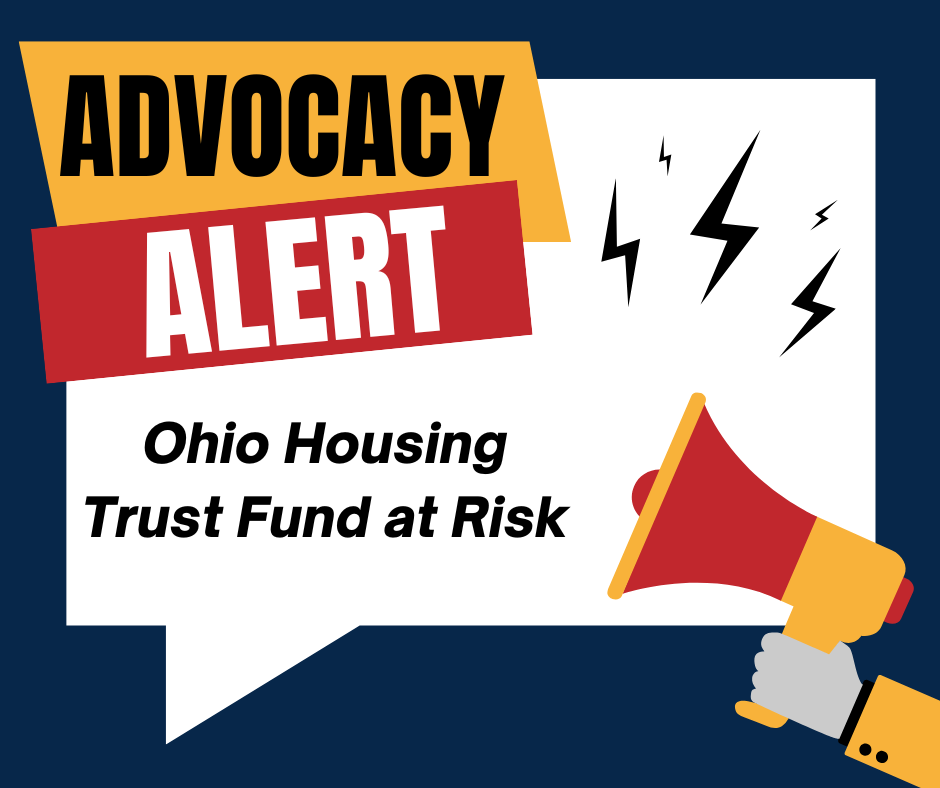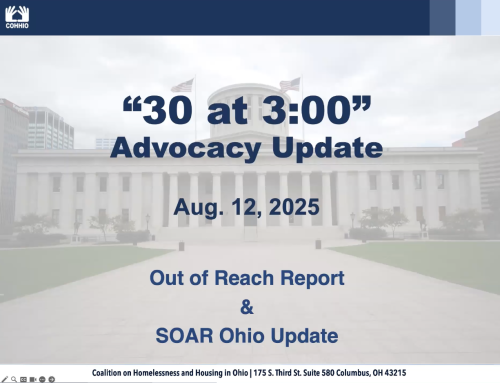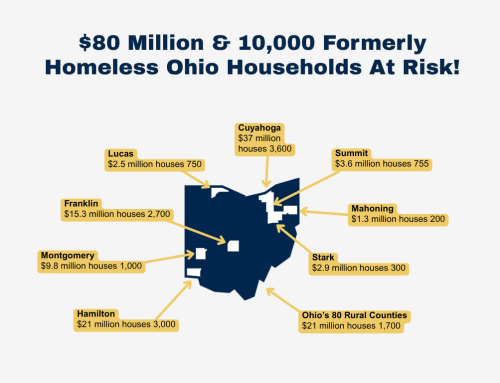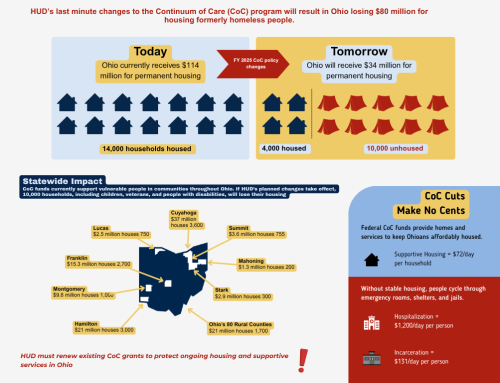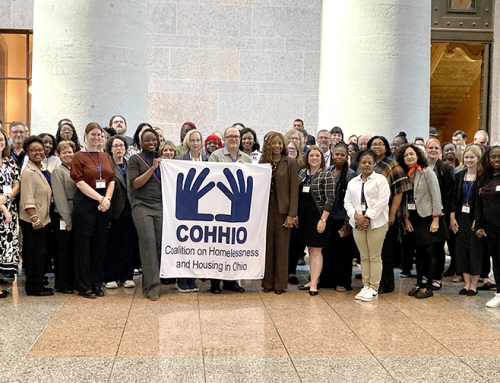Updated June 26, 2025:
Good news! The legislature rejected a budget amendment that would have gutted the Ohio Housing Trust Fund! The legislature approved the budget bill (HB 96) last night, affirming the current structure of Ohio Housing Trust Fund.
The final budget bill, which now heads to Gov. DeWine to sign before the June 30 deadline, also preserves the Ohio Housing Finance Agency as an independent agency despite a short-lived amendment that would have combined OHFA with the Ohio Department of Development.
Thank you for helping us advocate to save the Housing Trust Fund and OHFA! Your meetings, testimony, calls, and emails to legislators were crucial for protecting the primary source of state funding for local homelessness and affordable housing programs.
COHHIO Executive Director Amy Riegel issued the following statement in response to the Ohio Senate’s support for the Housing Trust Fund:
“We applaud the General Assembly’s wise decision to affirm the Ohio Housing Trust Fund in the final budget bill. We are so thankful to the many legislators that recognize that the existing funding structure gives the state a powerful tool to address housing insecurity in communities throughout Ohio.”
The General Assembly also made some changes to the Welcome Home Ohio program created last session to expand owner-occupied housing development and revitalize communities. In addition, the budget bill creates a new Residential Economic Development Grant (REDD) program to offer up to $35 million for local governments to support housing development near major economic development projects.
Background: The Ohio House included an amendment in their version of the biennial budget (HB 96) that would have forfeited state oversight of the Ohio Housing Trust Fund, the primary source of state funding for local homelessness and affordable housing services. The surprise amendment, which was never publicly discussed and had no identified supporters, would allow each county to keep all the Housing Trust Fund Fee revenue they collect for unspecified “housing-related purposes.”
COHHIO, the Home Matters to Ohio coalition, and local advocates pointed out that the proposed amendment would increase administrative costs and diminish overall housing resources, especially in rural areas. The Senate removed the amendment and both chambers ultimately agreed to maintain the current structure of the Housing Trust Fund in the budget conference committee process.
The Ohio Housing Trust Fund has a 30+ year track record of investing resources responsibly and effectively, with the flexibility necessary to respond to specific and emerging housing issues where they are most needed. In FY 2024, the OHTF allocated $65 million to support:
- Emergency shelter for over 27,000 Ohioans
- Supportive housing to keep 2,696 formerly homeless households safely housed
- Homelessness prevention and rapid rehousing services for 3,449 households
- Development and rehabilitation of 523 affordable rental units
- Home repair and accessibility modifications to over 1,600 units to keep seniors and Ohioans with disabilities living in their own homes.
Thank you for amplifying our advocacy to save the Housing Trust Fund! Keep educating legislators about the good work you’re doing in their districts to help their vulnerable constituents escape homelessness and secure a safe, decent, affordable home.
The COHHIO Team
